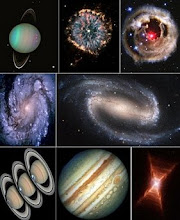Friday, February 19, 2010
Why I'm Dropping Google
By Kirk McElhearn, Macworld.com
For a company whose unofficial slogan is "Don't Be Evil," Google has been ignoring its so-called core value with alarming frequency as of late. And because of that, I decided to delete my Gmail account, along with all other Google services that I am able to do without. I have also deleted as much personal information as possible from my Google profile. I still need to use some Google services--I have clients who share a couple of documents via Google Docs, I need to access one private blog on Blogger, and I will continue to use Google search (though I plan on exploring alternatives, such as Bing and Yahoo). But for the most part, I'm dropping Google wherever I can. It was a combination of recent incidents that drove me to this point. One was the introduction of Google Buzz, which, in some cases, disclosed contact information that users thought was private. When Google launched Buzz, its "social networking tool," the company didn't let users opt into the program, but automatically applied it to all of the millions of users of the company's free Gmail. Google quickly backtracked, but it is not clear whether the "turn off Buzz" link at the bottom of Gmail pages truly purges the links that Google created.
The second incident was the recent deletion of a number of music blogs from Google's Blogger and Blogspot platforms without even notifying the owners of the blogs or attempting to determine whether the shutdowns were valid. This is not the first time that Google has pulled the plug on music blogs because of DMCA complaints, but some bloggers claim that their blogs were perfectly legal), because they had permission for every track they posted. While MP3 and music blogs are a popular way of distributing copyrighted content without the owners' permission, not every such blog is violating the law. A similar shutdown of blogs last year lead to Google's developing new guidelines, but this current incident shows that someone at Google didn't read the new rules. Google's actions in these incidents were certainly not accidental, and they are part of a growing trend. Whether it be Google's censorship of search results for Chinese users--the company helped build the Great Firewall of China before it was against it--or Google CEO Eric Schmidt's flip comment regarding privacy ("If you have something that you don't want anyone to know, maybe you shouldn't be doing it in the first place."), Google has become a corporation that has strayed from its initial values. By choosing an opt-out model for Buzz that basically forced all Gmail users to become a part of this service, Google simply hoped that everyone would ignore this lack of choice and accept it tacitly, so the next time it wanted to impose new features, people would consider it normal. That choice failed, fortunately. Google has become so monolithic that it has reached the point of a near-monopoly in certain areas. To be fair, no other search engine comes close to Google in quality, and, while the company should be lauded for that, it's the way Google uses that search engine, and related services, that makes it the Standard Oil of the 21st century. (I won't discuss the potential issues involving Google Books; or how the company is milking news organizations via Google News; or the many other issues that one could raise about the company.)
But not only does Google dominate the search (and, hence, advertising) market, it also knows a lot about you. By adding more and more "free" services--free in exchange for the annoyance of ads, and for users' giving up their privacy--Google accumulates a wealth of information about your interests, your browsing habits, your contacts, the blogs you visit (using your Google profile), pictures of your home, and much more. (Do you know how much information Google has connected to your Gmail address? Check here: You may be surprised.) Not only does Google have this information on its servers, but if anyone were to be able to hack into your Google account, they'd have a wealth of information about you too (and your business, if you use Google Docs for business documents). (Note that, for those who use Firefox, there's an add-on, Google Sharing, that lets you use most Google tools without sharing any private data.) And all that information, and all those "free" services, are amassed and provided for one simple goal: to follow your every movement on the Internet and show you ads related to your searches, e-mails and documents. Many people accept the "free" services in spite of those ads, which, when you look closely, often depend on the content of your personal e-mails. Is the Trojan horse of free e-mail, YouTube videos, and online word processing documents worth giving up one's privacy, all so a company can make billions from ads? (Your personal information and search habits earned Google more than $6 billion in profits last year.) For me, it's not. Google knows more about you than the NSA, and has recently shown that it doesn't give a hoot about your privacy. The company has gotten too big, and has turned into just another corporation trying to maximize its assets--and those assets are you. Who's to say Google won't progressively loosen its privacy controls and monetize more and more personal information? I'm ditching Google as much as I can, and when a competitor develops a search engine as good as Google, I'll stop searching with Google, too. The trend that Google has been following has been looking darker and darker as the company nibbles away at the limits of privacy. This is no longer a company I trust.
[Senior contributor Kirk McElhearn writes about more than just Macs on his blog Kirkville.]
For a company whose unofficial slogan is "Don't Be Evil," Google has been ignoring its so-called core value with alarming frequency as of late. And because of that, I decided to delete my Gmail account, along with all other Google services that I am able to do without. I have also deleted as much personal information as possible from my Google profile. I still need to use some Google services--I have clients who share a couple of documents via Google Docs, I need to access one private blog on Blogger, and I will continue to use Google search (though I plan on exploring alternatives, such as Bing and Yahoo). But for the most part, I'm dropping Google wherever I can. It was a combination of recent incidents that drove me to this point. One was the introduction of Google Buzz, which, in some cases, disclosed contact information that users thought was private. When Google launched Buzz, its "social networking tool," the company didn't let users opt into the program, but automatically applied it to all of the millions of users of the company's free Gmail. Google quickly backtracked, but it is not clear whether the "turn off Buzz" link at the bottom of Gmail pages truly purges the links that Google created.
The second incident was the recent deletion of a number of music blogs from Google's Blogger and Blogspot platforms without even notifying the owners of the blogs or attempting to determine whether the shutdowns were valid. This is not the first time that Google has pulled the plug on music blogs because of DMCA complaints, but some bloggers claim that their blogs were perfectly legal), because they had permission for every track they posted. While MP3 and music blogs are a popular way of distributing copyrighted content without the owners' permission, not every such blog is violating the law. A similar shutdown of blogs last year lead to Google's developing new guidelines, but this current incident shows that someone at Google didn't read the new rules. Google's actions in these incidents were certainly not accidental, and they are part of a growing trend. Whether it be Google's censorship of search results for Chinese users--the company helped build the Great Firewall of China before it was against it--or Google CEO Eric Schmidt's flip comment regarding privacy ("If you have something that you don't want anyone to know, maybe you shouldn't be doing it in the first place."), Google has become a corporation that has strayed from its initial values. By choosing an opt-out model for Buzz that basically forced all Gmail users to become a part of this service, Google simply hoped that everyone would ignore this lack of choice and accept it tacitly, so the next time it wanted to impose new features, people would consider it normal. That choice failed, fortunately. Google has become so monolithic that it has reached the point of a near-monopoly in certain areas. To be fair, no other search engine comes close to Google in quality, and, while the company should be lauded for that, it's the way Google uses that search engine, and related services, that makes it the Standard Oil of the 21st century. (I won't discuss the potential issues involving Google Books; or how the company is milking news organizations via Google News; or the many other issues that one could raise about the company.)
But not only does Google dominate the search (and, hence, advertising) market, it also knows a lot about you. By adding more and more "free" services--free in exchange for the annoyance of ads, and for users' giving up their privacy--Google accumulates a wealth of information about your interests, your browsing habits, your contacts, the blogs you visit (using your Google profile), pictures of your home, and much more. (Do you know how much information Google has connected to your Gmail address? Check here: You may be surprised.) Not only does Google have this information on its servers, but if anyone were to be able to hack into your Google account, they'd have a wealth of information about you too (and your business, if you use Google Docs for business documents). (Note that, for those who use Firefox, there's an add-on, Google Sharing, that lets you use most Google tools without sharing any private data.) And all that information, and all those "free" services, are amassed and provided for one simple goal: to follow your every movement on the Internet and show you ads related to your searches, e-mails and documents. Many people accept the "free" services in spite of those ads, which, when you look closely, often depend on the content of your personal e-mails. Is the Trojan horse of free e-mail, YouTube videos, and online word processing documents worth giving up one's privacy, all so a company can make billions from ads? (Your personal information and search habits earned Google more than $6 billion in profits last year.) For me, it's not. Google knows more about you than the NSA, and has recently shown that it doesn't give a hoot about your privacy. The company has gotten too big, and has turned into just another corporation trying to maximize its assets--and those assets are you. Who's to say Google won't progressively loosen its privacy controls and monetize more and more personal information? I'm ditching Google as much as I can, and when a competitor develops a search engine as good as Google, I'll stop searching with Google, too. The trend that Google has been following has been looking darker and darker as the company nibbles away at the limits of privacy. This is no longer a company I trust.
[Senior contributor Kirk McElhearn writes about more than just Macs on his blog Kirkville.]
Labels:
Science/Technology
Subscribe to:
Post Comments (Atom)













































No comments:
Post a Comment